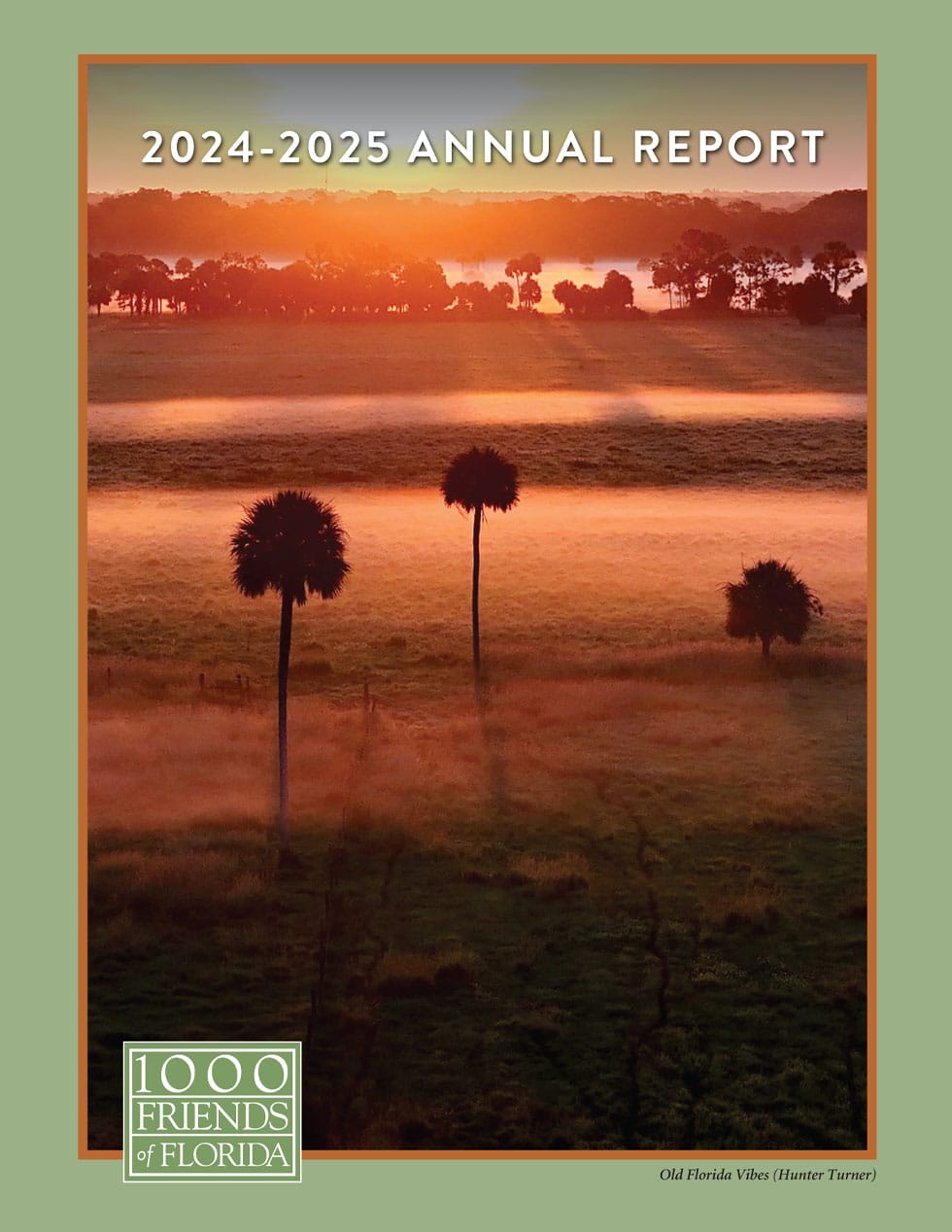Saving Special Places • Building Better Communities
Imhoff v. Walton
On Wednesday, September 15, 2021, the First District Court of Appeal issued a landmark opinion in the Imhoff v. Walton case. “This ruling fully supports comprehensive planning and a citizen’s right to challenge development orders that are inconsistent with the plan,” declared attorney Terrell K. Arline, who represented the two private citizens and not-for-profits Beach to Bay Coalition and South Walton Community Council in Imhoff v. Walton. Arline, who previously served as 1000 Friends’ Legal Director from 1996 to 2000, litigated the citizen challenge to Walton County’s decision to approve a planned unit development (PUD) known as Cypress Lake.
Judge A. S. Tanenbaum wrote a 24-page opinion reversing the trial court’s ruling for the developer. In siding with the residents and the two local environmental organizations, the appellate court rejected the trial judge’s decision that only comprehensive plan policies dealing with “density, intensity, and land use” could be cited to challenge the development order. The decision also reversed the lower court’s conclusion that the South Walton Community Council did not have standing to sue. The appellate court’s ruling sent the case back to the trial court for consideration. There could be further action at the appellate level due to conflicting rulings from other Florida courts.
“This case is of major significance for comprehensive planning and citizen rights in our state. It has been a high priority for 1000 Friends and its allies,” said President Paul Owens. On behalf of 1000 Friends, Counsel Robert N. Hartsell, P.E., wrote a “friend of the court” amicus brief in support of the citizen challenge. Thomas Hawkins had helped lay the legal foundation for 1000 Friends’ position when he previously served as Policy & Planning Director. Former 1000 Friends Board Member Nancy Stroud, of Nancy E. Stroud, P.A., filed a friend of the court brief for The American Planning Association, Florida Chapter and The American Planning Association.
We thank all the parties that helped achieve this significant ruling. If you are interested in more details, scroll below for more information.
Background:
In December 2017, Walton County approved the development of the Cypress Lake PUD, to include 85 single-family, 40 duplex and 16 condominium units, as well as 5,300 square feet of commercial space in four mixed-use buildings. The 23-acre parcel abuts Topsail Hill Preserve State Park, a critical habitat conservation area, and Highway 30-A.
Two private citizens and not-for-profits Beach to Bay Coalition and South Walton Community Council challenged the decision in trial court. They contended Cypress Lake violated a wide range of provisions in the county’s comprehensive plan and land development code. Relying on an unfavorable 2017 ruling in Heine v. Lee, which found that such challenges could only be narrowly brought on issues of density, intensity and land use, the trial court found in favor of Walton County.
The trial court also found that the South Walton Community Council did not have standing to participate in the challenge because it “failed to establish that it possesses any interest in the project beyond that shared by all persons.” This provision, if not overturned, could prevent challenges throughout Florida by community watchdog organizations, including 1000 Friends.
1000 Friends previously filed an amicus brief in another case citing the Heine ruling, Cruz v. Miami, opposing the dramatically narrowed interpretation of comprehensive plan challenges, but the court supported the restrictions.
Returning to the Walton County challenge, when the trial court found in favor of the county, the challengers, represented again by attorney Terrell K. Arline, appealed the decision to the First District Court of Appeal. On behalf of 1000 Friends, Counsel Robert N. Hartsell, P.A., filed a “friend of the court” amicus brief.
On September 15, 2021, Judge A. S. Tanenbaum wrote a 24-page opinion reversing the trial court’s ruling. In siding with the residents and environmental organizations, the Court rejected the trial judge’s decision that only comprehensive plan policies dealing with “density, intensity, and land use” could be cited to challenge the development order. The decision also reversed the lower court’s conclusion that the South Walton Community Council did not have standing to sue.
“This ruling fully supports comprehensive planning and a citizen’s right to challenge development orders that are inconsistent with the plan,” stated Arline. 1000 Friends President Paul Owens declared, “We are proud to have supported the challengers in obtaining this landmark decision.”





